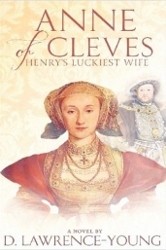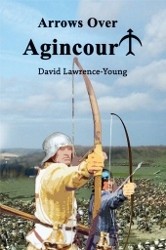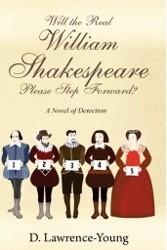Rain Sparked My Interest In Books...
...and I've poured everything into them ever since
I would say that my writing career probably started on a showery afternoon in July 1999 in Dorking, Surrey, a small country town in the south-east of England. I had gone shopping with my cousin while I was back in the UK for a visit and suddenly it started raining very heavily. We dived into the nearest shop for shelter, and fortunately for me it was a second-hand book shop. Carrying the books we had bought, we left the shop half-an-hour later. My cousin was holding a couple of thrillers, while I was excited to have bought a 1910 signed copy of Bacon is Shakespeare*, and a history book about the Tolpuddle Martyrs.
I found this last-named book fascinating. All that we had ever been taught in our history lessons in school was that these six Martyrs were agricultural laborers who had lived in Tolpuddle, Dorset, a village near the English south coast. In 1833 they had angered the local landowners by organizing the first trade union in the area as a way of trying to improve their pay and conditions. As a result, these laborers were put on trial and transported to Australia for seven years. While there, the British public and the newly-founded union movement organized massive protests and demonstrations which resulted in the Martyrs being brought home three years later.
For some unknown reason, but probably due to my Socialist and Habonim background, I decided to rewrite this intriguing story as an historical novel. This took me six months and was the beginning of a long learning curve about writing and getting myself published - a curve which I am still learning today.
A trio of books by the author: Anne of Cleves: Henry's Luckiest Wife, Arrows Over Agincourt, and Will the Real William Shakespeare Please Step Forward?
At first, naive and full of hope, I sent out my manuscript to several publishers, thinking that they would soon be beating down my door to publish what was obviously a well-written future best-seller! No such luck. All I received were reject notes and I began collecting these like a philatelist who collects stamps he doesn't really want. However, all the books and articles I read about publishing at the time insisted that 'you, as a new writer, must simply persevere if you ever want to get your magnum opus published.' So I persevered.
Eventually after many months and a fat file of rejection letters, Paragon Press Publishing sent me a contract. Aha! I thought. The barrier to the road leading to fame and fortune had finally been lifted. I was to be sorely disappointed. The book's front cover and its general appearance were disastrous. The cover's predominant colors were a combination of pale pink and pale brown while the illustration on it had absolutely nothing to do with the brave Tolpuddle Martyrs. When I went to England soon after the book was published and met the publishers, I asked them whether they could change the cover. They promised to do so but never did. One year later the company went bankrupt! Was this a coincidence?
One of the things this experience taught me was the importance of commercially attractive covers. Now when I sign a contract, I ask for the right to have a say in what the final cover will look like even though the publisher will have the last word.
However, not all my meetings with publishers and people connected with my writing were as fruitless as this one. Many of them were very pleasant and useful. While carrying out some background research for my novel about Christopher Marlowe, Marlowe: Soul'd to the Devil, I had a long chat with the Cambridge University Chancellor of Corpus Christi College about their Elizabethan student who had studied there in the 1580s. He even took off time to show me the famous (alleged) portrait of this playwright and also showed me where Marlowe roomed when he was living on the campus during his three-year stay.
Other profitable meetings were held nearer to home, in Jerusalem, and in Moshav Avihail near Netanya. Here I met some World War 2 veterans who had fought with the Jewish Brigade in North Africa and Italy. They told me about their wartime experiences and gave me some useful insights for my WW2 novel, Of Guns, Revenge and Hope.
Of course, writing about Israeli or pre-Israeli history is much easier for me as I live here. One of the problems about being an ex-pat writer of historical novels that are based on English history is that I live far away from where it all happened. It is true that by using the Internet, Google and cheap international phone calls, it is not too difficult to obtain the necessary background information. However, living thousands of miles away from the action is certainly a disadvantage when it comes to the marketing and dealing with publishers.
Since I cannot fly to England or anywhere else at the drop of a hat, it is not easy to take part in book-signings, book fairs and similar events. Therefore, I have to try and generate as much interest and publicity in my books as possible via the Internet. As a result I have developed a website which I work on to keep up-to-date and informative. I am also in regular contact with reviewers in the UK, the USA, Australia and even Egypt who review my novels and then post these reviews on various Internet sites, such as Goodreads, Amazon and Librarything.
The distance from here to where my main potential readership is, is the main reason why I have never tried to go in for self-publishing. At first it would seem that this form of publishing would be ideal, but this is not so. While it is true that you, as the author, have complete control over the writing and publishing process, including cover design, font, illustrations, etc., how are you going to sell your book in the English speaking world if you live here? So, for example, even if my Australian-flavored novel, Sail Away from Botany Bay, deals with an important aspect of Australian history, to self-publish it here and then hope that somehow the Antipodean public will hear about it is not very realistic.
So why do I write novels mainly about Shakespeare, English and military history? The answer is simple. These are the topics that I really love researching and writing about. For me, the best part of writing, apart from using my imagination and creative skills, is describing the characters I depict and the backgrounds that they lived in. It was fascinating for me to find out how Guy Fawkes obtained the gunpowder he needed to blow up the Houses of Parliament in 1605; how William-Henry Ireland learned to forge Shakespeare's works; and which weapons Henry V used at the Battle of Agincourt in 1415. In other words, writing historical novels for me boils down to combining my major loves of researching Shakespeare, historical events and the characters I describe while using my knowledge of English, a language I actively love.
And on a final note, to answer the question, why dafka do you like to write historical novels as opposed to any other genre? After all, the end of the story is well-known. We know Marlowe was stabbed to death in a tavern in Deptford and that Henry VIII's fifth wife, Catherine Howard, was executed for adultery. The answer to this is that even though the end of the plot is known, the travelling along this literary journey is more exciting and important than the actual arriving at the final full-stop.
(*A book by Sir Edwin Durning-Lawrence who claimed that Sir Francis Bacon wrote Shakespeare's works.)
Author Bio
David Lawrence-Young taught English and history in universities and high schools for over 45 years and has had 12 historical novels published.
Email: This email address is being protected from spambots. You need JavaScript enabled to view it. (Willing to give free advice about publishing etc.)
Website: www.dly-books.weebly.com











Comments